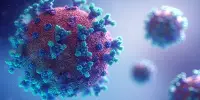For the first time, researchers from Ann & Robert H. Lurie Children’s Hospital of Chicago and colleagues announced that a genetic biomarker may be able to assist in predicting the severity of food allergy reactions. There is currently no reliable or easily accessible clinical biomarker that properly separates patients with food allergies who are at risk for severe life-threatening reactions from those who have milder symptoms. The findings were reported in the Journal of Allergy and Clinical Immunology.
Dr. Lang and colleagues discovered that the existence of an enzyme isoform termed -tryptase, which is encoded by the TPSAB1 gene, is associated with a higher prevalence of anaphylaxis or severe food reactions when compared to those without α-tryptase.
“Determining whether or not a patient with food allergies has α-tryptase can easily be done in clinical practice using a commercially available test to perform genetic sequencing from cheek swabs,” said lead author Abigail Lang, MD, MSc, attending physician and researcher at Lurie Children’s and Assistant Professor of Pediatrics at Northwestern University Feinberg School of Medicine.
Determining whether or not a patient with food allergies has α-tryptase can easily be done in clinical practice using a commercially available test to perform genetic sequencing from cheek swabs.
Abigail Lang
“If the biomarker is found, it may help us understand that the child is more likely to have a severe reaction or anaphylaxis from their food allergy and should use their epinephrine auto-injector if exposed to the allergen.” Our findings also pave the way for the development of an altogether new food allergy therapy strategy that would target or block -tryptase. This is a promising initial step, but additional research is required.”
Mast cells, which are white blood cells that are part of the immune system, contain the most tryptase.
During allergic reactions, mast cells get activated. higher TPSAB1 copy number, which results in higher -tryptase, has previously been linked to severe reactions in adults with Hymenoptera venom allergy.

Dr. Lang’s study comprised 119 people who underwent TPSAB1 genotyping, 82 from an observational food allergy cohort at the National Institute of Allergy and Infectious Diseases (NIAID), and 37 from a cohort of children who reacted to a peanut oral meal challenge at Lurie Children’s.
“We need to validate our preliminary findings in a much larger study, but these initial results are promising,” said Dr. Lang.
“We also still need a better understanding of why and how α-tryptase makes food allergy reactions more severe in order to pursue this avenue for potential treatment.”
Rajesh Kumar, MD, MSc, from Lurie Children’s is the co-senior author on the study.
Dr. Kumar is the Interim Division Head of Allergy and Immunology and Professor of Pediatrics at Northwestern University Feinberg School of Medicine.
















